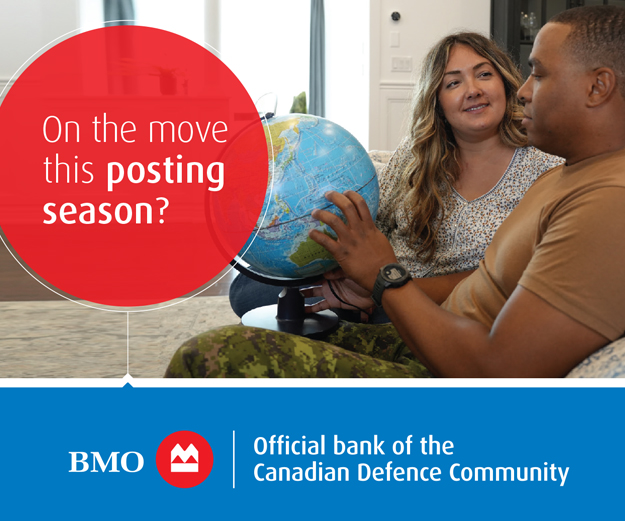It’s important for Veterans and Families prioritize their well-being too this holiday season
By Fardous Hosseiny,
President and CEO, Atlas Institute for Veterans and Families
As we enter the festive period, for many the season is one of joy as they look forward to Family gatherings, travelling and parties. However, for some Veterans and their Families, the season can be a time that is more stressful than joyful, marked instead by a persistent sad or empty mood, feelings of hopelessness or pessimism, or even irritability, frustration and restlessness.

It is important to recognize that those who have served are disproportionately affected by mental health challenges such as posttraumatic stress injuries (PTSIs), which can have an impact on day-to-day functioning, mental health and the experience of the holiday season. Approximately 10% of all military Veterans are affected by posttraumatic stress disorder (PTSD) and about one in four are affected by a form of mental illness.
This in many ways could be viewed as a very natural and expected response to the holiday season. Whether separation from Family and friends during the holidays adds intensity to difficult emotions due to the holidays following so closely after Remembrance Day, the period that starts in the month of November through to the end of January can be a particularly solemn time for this group.
Although the holidays can be hard to navigate, there are ways to make it easier to get through.
If you are a Veteran, you have been trained to respond to noise, chaos and to watch and sense everything around you. If you are a Veteran living with a PTSI, this can mean that the hustle and bustle of busy gatherings and holiday shopping can be overstimulating or even triggering. The holidays also come with a constant pressure to socialize and appear “happy,” which can be exhausting.
Another helpful tip is to maintain routine and prioritize self-care, whether that means keeping up with medication, getting outside, exercising or enjoying hobbies such as reading or playing music. In addition, it’s okay to pick and choose who you surround yourself with. Being around those who lift you up and understand you and what makes this time difficult could make it easier to cope. When things get tough, keep contact information on hand for trusted, supportive people such as your counsellor, or peer or spiritual support.
If you are a loved one of a Veteran or Veteran Family member, it’s important to approach the holidays with kindness and patience by honouring their need for a safe space. You can ask the Veteran in your life if and how they would like to be included in holiday activities. Ask them what they need, what would make them more comfortable, and understand that they may not know the answer just yet.
As a Family member, your holiday experience may be different from that of a Veteran, but it’s important to realize that your needs and perspectives are just as vital to consider. There are ways to care for yourself while also taking care of your loved one. Self-care not only allows Family members to be adequately equipped and healthy enough to support a loved one who’s a Veteran, but also to not burn out or experience compassion fatigue. When it comes to children, it’s also important to give them space and support to share their feelings. By showing compassion and love without blaming or villainizing the person in the Family dealing with a PTSI, the children will benefit immensely.
Please remember to be equally kind to yourself as you navigate this period.
Whether Veteran or Family member, despite the pressure to be social, it is important to know that it’s okay to focus on your own needs first. This might mean coming up with a plan to navigate the holidays in a way that feels good and minimizes holiday stress for you and your Family. That could include managing expectations by being clear about your needs and keeping things simple. Consider planning for visits to be short and strategic, if that’s what you need. Discuss an exit strategy with your partner or make note of where to go to find a quiet space to decompress. Don’t be afraid to cancel and step away from busy activities as needed or to make new traditions.
We all have a role to play when it comes to making the holidays more enjoyable. The most important thing is to care for each other and show kindness and patience to others as well as to ourselves. As the holidays approach, whether you are a Veteran or the loved one of a Veteran, it’s important to remember that your needs matter and to make self-care a priority during this period.





